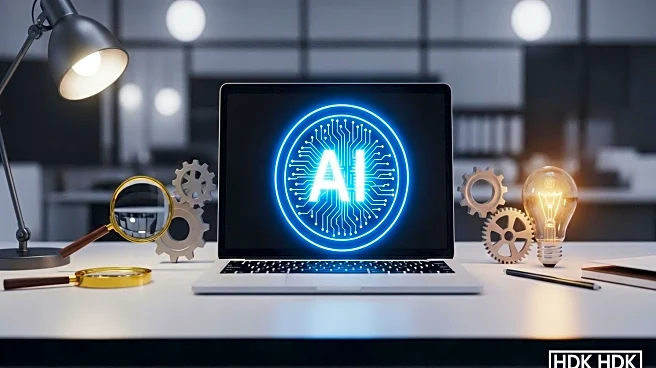What's Happening?
Recent HR trends indicate a growing focus on workforce skills development and the delayed implementation of Colorado's artificial intelligence law. Workers are increasingly seeking to enhance their skills for future career growth, while only a small percentage of major companies have set goals for investing in workforce skills. The delay in Colorado's AI law reflects pushback from various stakeholders, highlighting the complexities of integrating AI into business practices.
Why It's Important?
The emphasis on workforce skills development is crucial for U.S. companies to remain competitive in a rapidly evolving job market. As AI technologies become more prevalent, companies must invest in training programs to equip employees with the necessary skills to adapt to new tools and processes. The delay in AI law implementation underscores the challenges of balancing innovation with regulatory compliance, which could impact how businesses integrate AI into their operations.
What's Next?
Companies will need to reassess their workforce development strategies to align with emerging technologies and regulatory changes. As AI laws are finalized, businesses must prepare to comply with new regulations while continuing to innovate. HR departments will play a key role in facilitating this transition, ensuring that employees are equipped to navigate the changing landscape.
Beyond the Headlines
The delay in AI law implementation raises questions about the readiness of regulatory frameworks to address the ethical and practical implications of AI in the workplace. As AI continues to transform industries, ongoing dialogue between policymakers, businesses, and civil society will be essential to develop comprehensive regulations that protect workers and promote responsible AI use.











